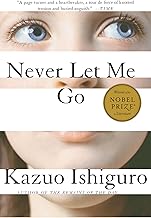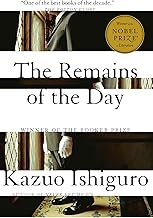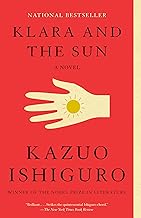
How to Read Kazuo Ishiguro's Books on Book guide
How to Read Kazuo Ishiguro's Books on Book Guide
Estimated Reading Time: 10-12 minutes
Introduction
Kazuo Ishiguro, a Nobel Prize-winning author, has carved a unique niche in contemporary literature with his profound exploration of memory, identity, and the human condition. Born in Nagasaki, Japan, in 1954, Ishiguro moved to the UK at the age of five, an experience that deeply influenced his writing. His works often reflect a blend of Eastern and Western philosophies, providing a rich tapestry of insights into the complexities of human relationships and the ethical dilemmas posed by technological advancements.
Ishiguro's novels are not just stories; they are meditations on the nature of existence, making his perspective on the theme of "Book guide" particularly valuable. His exploration of the human experience resonates in a world increasingly shaped by technology and moral ambiguity, prompting readers to reflect on their own lives and choices.
Why Kazuo Ishiguro's Perspective Matters
Ishiguro's approach to literature is distinctive due to his ability to weave intricate narratives that delve into the psychological depths of his characters. Unlike many contemporary authors who focus on overt action and plot twists, Ishiguro's works often center on introspection and the subtleties of human emotions. His exploration of themes such as memory, loss, and the ethical implications of scientific advancements provides a unique lens through which to examine the human experience.
His narratives challenge readers to confront uncomfortable truths about themselves and society, often leaving them with more questions than answers. This open-endedness is a hallmark of Ishiguro's writing, encouraging readers to engage deeply with the text and reflect on their own lives. The lasting impact of his ideas can be seen in the way they provoke discussions about morality, technology, and what it means to be human.
Overview of Recommended Books
Never Let Me Go
Main Themes and Arguments: "Never Let Me Go" is a dystopian novel that raises profound ethical questions about cloning and the value of human life. Set in a world where human clones are created for organ donation, the story follows Kathy, Tommy, and Ruth, who grapple with their identities and the fate predetermined for them. The novel delves into themes of love, loss, and the quest for meaning in a life that feels preordained.
Historical Context and Significance: Published in 2005, "Never Let Me Go" coincided with growing public discourse around biotechnology and cloning. Ishiguro's narrative serves as a cautionary tale about the implications of scientific advancements on humanity, urging readers to consider the moral dilemmas that accompany such progress.
Key Insights and Takeaways:
- The Nature of Identity: The characters' struggles highlight how identity is shaped by societal expectations and personal experiences.
- The Ethics of Science: The novel prompts readers to reflect on the moral implications of scientific advancements and the value of human life.
- The Importance of Memory: Memory plays a crucial role in shaping the characters' identities and their understanding of their lives.
Why Read This Book: "Never Let Me Go" is essential for understanding contemporary ethical dilemmas surrounding technology and humanity. It is particularly relevant for readers interested in bioethics, philosophy, and the complexities of human relationships.
The Remains of the Day
Main Themes and Arguments: In "The Remains of the Day," Ishiguro explores themes of duty, regret, and the passage of time through the eyes of Stevens, an English butler. The novel is a poignant reflection on the choices we make and their lasting impact on our lives. As Stevens embarks on a road trip to visit a former colleague, he reflects on his life of service and the emotional sacrifices he made in the name of duty.
Historical Context and Significance: Published in 1989, this novel is set against the backdrop of post-World War II England, a time of significant social change. Ishiguro's exploration of the fading British aristocracy and the implications of a life dedicated to service resonates with themes of nostalgia and loss.
Key Insights and Takeaways:
- The Cost of Duty: Stevens' unwavering dedication to his profession raises questions about the sacrifices we make for our careers and the impact on personal relationships.
- Regret and Reflection: The narrative encourages readers to reflect on their own lives and the choices that shape their identities.
- The Nature of Time: Ishiguro masterfully illustrates how time influences our perceptions and decisions, urging readers to confront their past.
Why Read This Book: "The Remains of the Day" is a profound exploration of the human condition, making it essential reading for anyone interested in themes of memory, regret, and the complexities of personal identity.
Klara and the Sun
Main Themes and Arguments: In "Klara and the Sun," Ishiguro presents a thought-provoking narrative through the eyes of Klara, an Artificial Friend (AF) designed to provide companionship to children. The novel explores themes of love, artificial intelligence, and the essence of humanity. As Klara navigates her world, she grapples with her understanding of love and what it means to be human.
Historical Context and Significance: Published in 2021, this novel reflects contemporary anxieties about technology and its role in our lives. As society increasingly integrates artificial intelligence into daily life, Ishiguro's exploration of the emotional capabilities of AI raises important questions about the nature of consciousness and connection.
Key Insights and Takeaways:
- The Nature of Love: Klara's perspective challenges readers to consider what constitutes genuine affection and connection.
- Ethics of Technology: The novel prompts discussions about the implications of relying on technology for companionship and emotional support.
- Humanity and Artificiality: Ishiguro blurs the lines between human and machine, encouraging readers to reflect on what it means to be truly alive.
Why Read This Book: "Klara and the Sun" is essential for understanding the evolving relationship between humans and technology. It is particularly relevant for readers interested in ethics, artificial intelligence, and the future of human connection.
How These Books Complement Each Other
While each of Ishiguro's novels addresses distinct aspects of the human experience, they collectively explore the interplay between memory, identity, and ethical dilemmas. "Never Let Me Go" and "Klara and the Sun" both grapple with the implications of technology on humanity, while "The Remains of the Day" offers a more introspective look at personal choices and their consequences. Together, these works provide a comprehensive understanding of the complexities of existence in a rapidly changing world.
Who Would Benefit from Reading These Books
These novels are ideal for a diverse audience:
- Students and Academics: Those studying literature, philosophy, or ethics will find rich material for analysis and discussion.
- General Readers: Anyone interested in thought-provoking narratives that challenge conventional views on humanity and technology.
- Professionals: Individuals seeking insights into personal growth, decision-making, and the ethical implications of their work.
- Personal Growth Seekers: Readers looking for introspective literature that encourages self-reflection and personal development.
Recommended Reading Order
- Start with: The Remains of the Day - This novel provides a foundational understanding of Ishiguro's exploration of memory and identity.
- Continue with: Never Let Me Go - Building on the themes of identity, this book introduces ethical dilemmas surrounding technology and humanity.
- Advanced reading: Klara and the Sun - This novel offers a contemporary perspective on artificial intelligence and emotional connection, rounding out the exploration of Ishiguro's themes.
Tips for Getting the Most Out of Each Book:
- Take notes on key themes and insights as you read.
- Reflect on how the characters' experiences relate to your own life.
- Engage with discussion groups or online forums to deepen your understanding.
Conclusion
Kazuo Ishiguro's contributions to literature offer profound insights into the complexities of the human experience. His exploration of memory, identity, and the ethical implications of technology encourages readers to reflect on their own lives and the choices they make. By delving into these works, readers can gain a deeper understanding of themselves and the world around them. I invite you to explore Ishiguro's novels and engage with the timeless questions they pose, as they remain ever-relevant in our rapidly evolving society.
Tags: #KazuoIshiguro #BookGuide #Philosophy #ReadingGuide #ClassicLiterature #Wisdom
Featured Books

Never Let Me Go
by Kazuo Ishiguro
Published: 2005
NOBEL PRIZE WINNER • From the acclaimed, bestselling author of The Remains of the Day comes “a Gothic tour de force" (The New York Times) with an extraordinary twist—a moving, suspenseful, beautifully atmospheric modern classic.One of The New York Times’s 10 Best Books of the 21st Century • A Kirkus Reviews Best Fiction Book of the Century • A Los Angeles Times Best Fiction Book of the Last 30 YearsAs children, Kathy, Ruth, and Tommy were students at Hailsham, an exclusive boarding school secluded in the English countryside. It was a place of mercurial cliques and mysterious rules where teachers were constantly reminding their charges of how special they were. Now, years later, Kathy is a young woman. Ruth and Tommy have reentered her life. And for the first time she is beginning to look back at their shared past and understand just what it is that makes them special—and how that gift will shape the rest of their time together. Read more

The Remains of the Day
by Kazuo Ishiguro
Published: 1989
BOOKER PRIZE WINNER • From the winner of the Nobel Prize in Literature, here is “an intricate and dazzling novel” (The New York Times) about the perfect butler and his fading, insular world in post-World War II England. This is Kazuo Ishiguro's profoundly compelling portrait of a butler named Stevens. Stevens, at the end of three decades of service at Darlington Hall, spending a day on a country drive, embarks as well on a journey through the past in an effort to reassure himself that he has served humanity by serving the "great gentleman," Lord Darlington. But lurking in his memory are doubts about the true nature of Lord Darlington's "greatness," and much graver doubts about the nature of his own life. Read more

Klara and the Sun
by Kazuo Ishiguro
Published: 2021
NEW YORK TIMES BESTSELLER • Once in a great while, a book comes along that changes our view of the world. This magnificent novel from the Nobel laureate and author of Never Let Me Go is “an intriguing take on how artificial intelligence might play a role in our futures ... a poignant meditation on love and loneliness” (The Associated Press). • A GOOD MORNING AMERICA Book Club Pick! Here is the story of Klara, an Artificial Friend with outstanding observational qualities, who, from her place in the store, watches carefully the behavior of those who come in to browse, and of those who pass on the street outside. She remains hopeful that a customer will soon choose her. Klara and the Sun is a thrilling book that offers a look at our changing world through the eyes of an unforgettable narrator, and one that explores the fundamental question: what does it mean to love? Read more